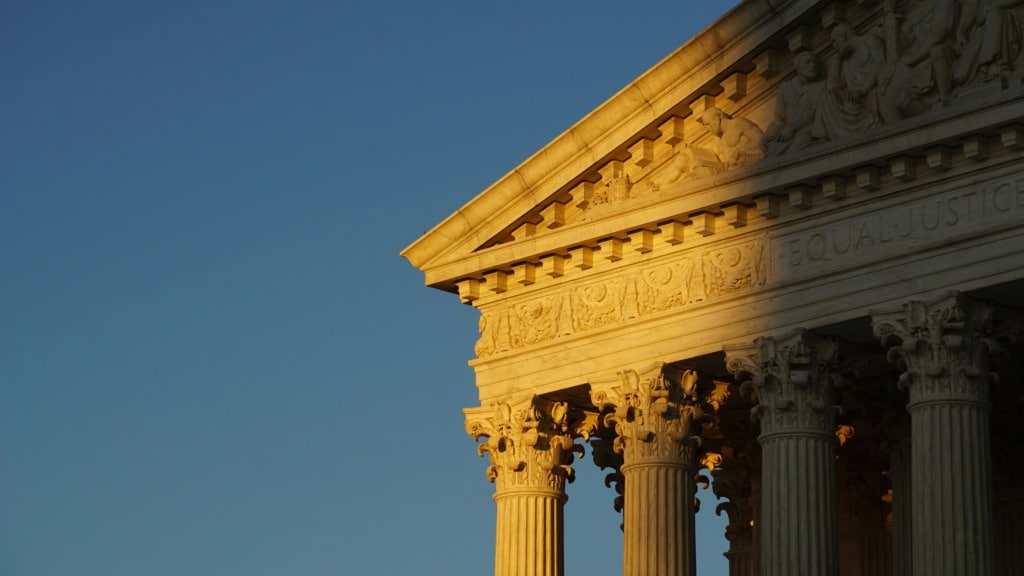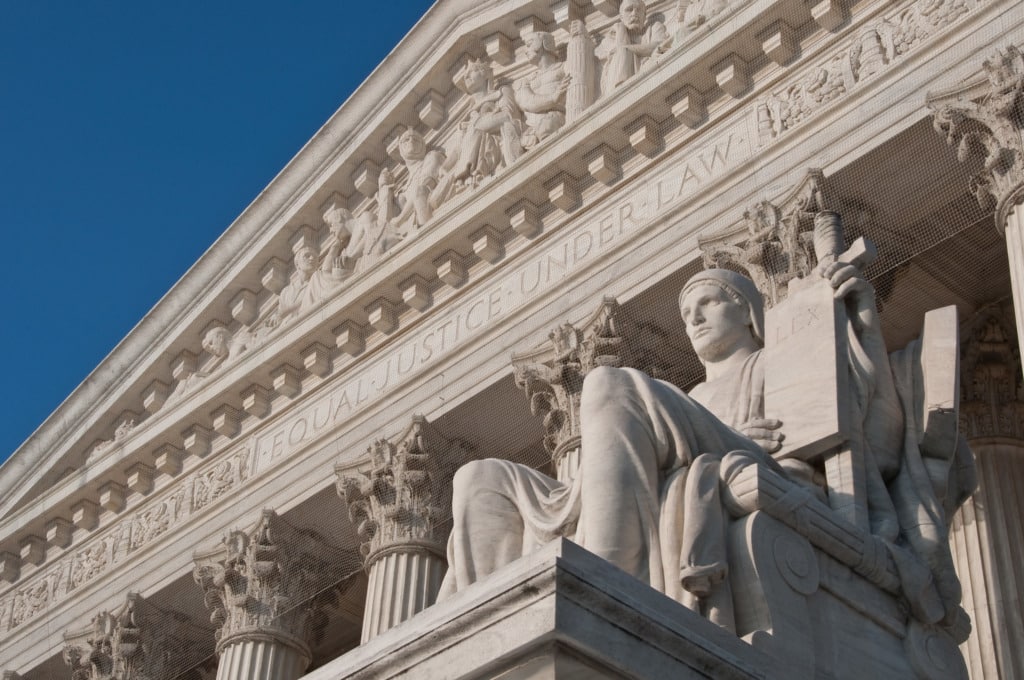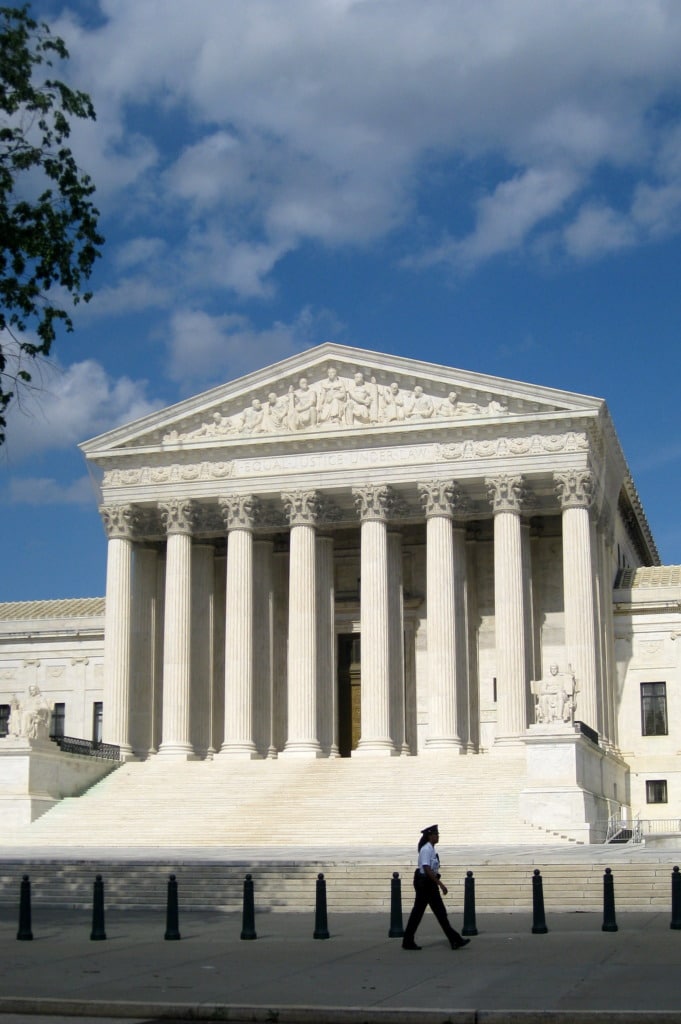Fifth Circuit Interprets Copyright Termination and Renewal Provisions to Apply Worldwide
In recent years, the U.S. Supreme Court has relied increasingly on the presumption against extraterritoriality to determine the geographic scope of federal statutes. This presumption seems particularly strong for intellectual property statutes. Most recently, the Court strictly applied the presumption against extraterritoriality to the Lanham Act (the federal trademark statute) in Abitron Austria GmbH v….
Continue ReadingSDNY Grapples with Fuld
In Fuld v. Palestine Liberation Organization, as we have previously covered, the Supreme Court held that the due process limits on personal jurisdiction under the Fifth Amendment differ from those of the Fourteenth Amendment. But the Court did not spell out what the personal jurisdiction analysis should be under the Fifth Amendment, other than stating…
Continue ReadingOral Argument Recap: Fuld v. PLO
On Tuesday, the Supreme Court heard oral argument in Fuld v. Palestine Liberation Organization. The question presented is whether the Promoting Security and Justice for Victims of Terrorism Act of 2019 (PSJVTA) violates the Fifth Amendment’s Due Process Clause by declaring that the Palestine Liberation Organization (PLO) and the Palestinian Authority (PA) have consented to…
Continue ReadingForeign States are “Persons”: CC/Devas v. Antrix Amicus Brief
The Supreme Court may soon resolve an important constitutional question: whether foreign states are “persons” entitled to Fifth Amendment due process. For those who engage seriously with the text, history, and structure of the Constitution, there is a ready answer: yes, foreign states are “persons.” The scope of the “process” to which foreign states are…
Continue ReadingArbitration Enforcement and Consent
This Term, the Supreme Court will hear a case that could have profound ramifications for international arbitration: CC/Devas (Mauritius) Ltd. v. Antrix Corp. Ltd. The petitioners are seeking to enforce an arbitration award they won against a state-owned company in India. The district court enforced the award, relying on the New York Convention and the…
Continue ReadingSupreme Court Grants Cert in Fuld v. PLO
Today, the U.S. Supreme Court granted certiorari in Fuld v. Palestinian Liberation Organization to decide whether the Promoting Security and Justice for Victims of Terrorism Act (PSJVTA) violates the due process clause of the Fifth Amendment. For prior TLB coverage of Fuld, see here, here, here, here, and here. The PSJVTA purports to establish personal…
Continue ReadingFuld and Waldman Plaintiffs Seek Supreme Court Review
TLB has followed the Second Circuit’s decisions holding unconstitutional the Promoting Security and Justice for Victims of Terrorism Act of 2019 (PSJVTA) and denying an en banc rehearing in Fuld v. Palestine Liberation Organization and Waldman v. Palestine Liberation Organization over a strong dissent by Judge Steven Menashi. As predicted, the plaintiffs recently filed a…
Continue ReadingSecond Circuit Denies Rehearing En Banc in Fuld v. PLO
Last week, the Second Circuit denied rehearing en banc in Fuld v. Palestinian Liberation Organization, an important personal jurisdiction decision that TLB has previously covered here, here, and here. The denial prompted a dissent by Judge Steven Menashi, joined in whole or in part by three other judges, which in turn prompted a concurrence by…
Continue ReadingNinth Circuit Gets Tangled Up in Minimum Contacts and Due Process
Do the Fifth Amendment’s due process protections require minimum contacts? And do those protections apply to foreign states sued under the Foreign Sovereign Immunities Act (FSIA)? Those are the fundamental questions on which Ninth Circuit judges offered differing approaches as they resolved a recent petition for rehearing en banc. Regular TLB readers may recall that…
Continue ReadingPersonal Jurisdiction and Extraterritoriality
The U.S. Supreme Court has repeatedly said that Congress has constitutional authority to regulate extraterritorially. “Both parties concede, as they must,” Chief Justice Rehnquist wrote in EEOC v. Arabian American Oil Co. (1991), “that Congress has the authority to enforce its laws beyond the territorial boundaries of the United States.” The presumption against extraterritoriality, which…
Continue Reading







